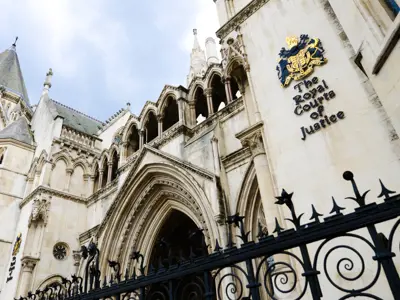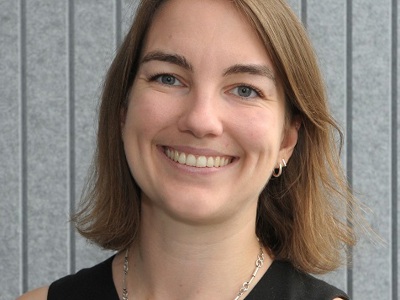
Coroner warns Transport for London intoxicated passengers could die if safety is not improved following inquest into the death of artist, Sarah Cunningham
The coroner at the inquest into the death of artist, Sarah Cunningham who died at Chalk Farm London Underground station has warned Transport for London (TfL) that intoxicated passengers could die on its network unless safety improvements are made.
Posted on 25 April 2025
Senior Coroner for Inner North London, Mary Hassell ruled that Sarah’s death was accidental following a one-day hearing at Poplar Coroner’s Court. She has now issued a Prevention of Future Deaths (PFD) report highlighting her concerns over the safety of intoxicated passengers on London’s transport network.
The Senior Coroner said: “I heard evidence at inquest that London Underground passenger intoxication is recognised as a risk to London Underground staff. Extreme intoxication is also known to be a risk to the individual who is intoxicated. However, it struck me that the risk to the individual is not necessarily at the forefront of TfL corporate thinking.
“Clearly, individuals have responsibility for their own drinking and/or drug taking and the consequences thereof. Intoxication carries additional risk whatever the activity.
“However, public transport is encouraged for many good reasons. Not least, it is a matter of public policy that those who are or may become intoxicated should make travel plans that do not involve being in charge of a vehicle. The London Underground is an obvious alternative.
“Realistically, some London Underground passengers will be intoxicated, and that has to inform TfL’s corporate planning. I heard that there was a TfL investigation following Sarah Cunningham’s death, but the learning from that appears at present to be somewhat aspirational, without a concrete plan.”
Sarah was reported missing on Saturday 2 November 2024, but the inquest heard it took two days for TfL workers to realise she had entered a tunnel at Chalk Farm station and to find her body.
Sarah’s family say there were “multiple chances” for people to intervene before she died on the tracks in the early hours of Saturday 2 November 2024.
A Transport for London investigation report referenced in evidence, said there was a “missed opportunity” for staff to speak to Sarah. CCTV footage played in court showed she spent around five minutes in the entrance hall at Chalk Farm station. She was eventually let through the barriers by a member of the public.
The inquest heard the barriers had been left unstaffed because while two members of staff were covering the station, one was on a break while the other staff member took an urgent phone call and was not monitoring the CCTV.
Lawyers from Leigh Day instructed by Sarah’s family, are "concerned that Transport for London does not appear to have committed to any actions to reduce the risks of this happening again in future".
The footage also showed that once inside the station, Sarah spent 12 minutes waiting on platforms, lying on a bench and narrowly missed a northbound train, running up to the carriage as the doors were closing. It was following this that she entered the tunnel.
In evidence, a staff member from Chalk Farm station said he had seen Sarah on CCTV and had concerns for her welfare. He told the court that he went to check but could not find her. He said it was an option to rewind the CCTV footage to see where Sarah had gone, but that he did not do this.
The inquest heard that there was an 18-minute gap between Sarah entering the tunnel, and the next train passing through the station. TfL accepted in evidence that this would have been sufficient time to switch off the power, stop the trains and order a search of the tunnels.
Dale Smith, Head of Customer Operations for the Northern and Jubilee Lines, was asked by the senior coroner to give evidence on TfL’s plans to reduce the risks of similar events in future.
Mr Smith said that wider plans to end deaths on London’s transport system were a “big piece of work”, and that it was a “broader issue than what happened at Chalk Farm”.
Sarah was born in Nottingham in 1993 and received an MA in Painting from London’s Royal College of Art in 2022. She was a resident at the Lisson Gallery in London, where colleagues described her as “a supremely talented, intelligent, sincere and original artist”. Her work has been included in numerous exhibitions including in Berlin, Los Angeles, New York and Vancouver.
Sarah’s family are represented by Thomas Jervis, partner and Philippa Wheeler, associate solicitor of Leigh Day’s personal injury team.
Thomas Jervis said:
"Sarah’s family believe her case is one in a long line of others shining a light on TfL’s approach to public safety. They welcome the Senior Coroner’s Prevention of Future Deaths report and sincerely hope that TfL use it as a real opportunity to make meaningful changes so that individuals are safe on the transport network.
"Sarah's family believe TfL need to reflect on what happened to Sarah and the Senior Coroner's PFD report to stand any chance of fulfilling their commitment to Vision Zero, where all deaths and serious injuries are to be eliminated from the transport network."

Woman who lost her arm and leg after being run over by two tube trains issues legal claim against Transport for London
A woman who was left seriously disabled after she was run over by two London Underground trains, has issued a legal claim against Transport for London (TfL) at the High Court.



